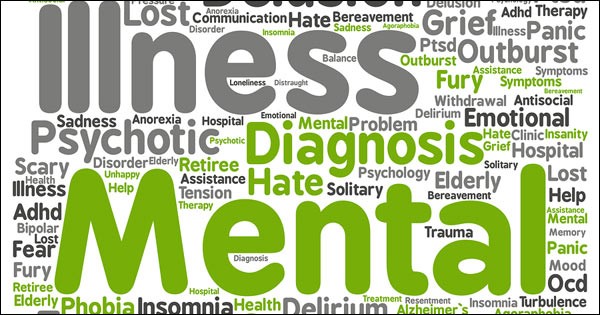Hypnosis and Help with Mental Illness Topics

Hypnosis has advanced into a viable alternative or adjunct treatment in the medical world. Elsewhere on this site you can find links to medical and scientific research and studies as proof. The questions are no longer can it help medical conditions but how can we apply hypnosis to help a patient recover quicker.
When mental illness came to my family, like most, I wasn't prepared. But I'm a quick learner and studied treatments to see what help I could look to get, and particularly if hypnosis could help.
I use the term mental illness deliberately rather than mental health to stem the confusion that’s being introducing today by avoiding use of the term. Mental illness, unfortunately, still carries a stigma. So, we started to use the term mental health to encompass these illnesses, but also much more.
But this is wrong.
Mental health today is used broadly to include anything that promotes our ability to support the health of our brain and mental capacity. So, people without a mental illness should pay attention to keeping themselves mentally active. We all need to take care of ourselves and practice good mental health just like we should all eat well and exercise.
It makes perfect sense.
However, in our zest to avoid using the term mental illness we’ve lumped it into the broader category of mental health. This means from a practical perspective we avoid the difficult discussions around mental diseases and funding for treatment and new medications.
Instead we fund mental health, which mostly goes towards supporting activities to help people that don’t have a mental illness. In a way, like our ancestors did, we push providing help to those with a mental illness, “under the mental rug.”
Research and help for serious mental illnesses such as Schizophrenia, Bi Polar Disorder, Anxiety Disorders, OCD, and Depression, has never been more widely needed. People with these illnesses don’t choose to have them.
It’s caused by a chemical imbalance in the brain.
It doesn’t choose favorites.
It's not due to a parent or family member causing it to happen in a sufferer.
These illnesses are no different from other medical conditions. The majority of people with mental illness are not violent but instead are victims of abuse and violence themselves.
I doubt there are few people reading this that don’t personally know somebody, or a family fighting for a loved one, with a mental illness. The numbers are staggering and it led me to wonder if hypnosis can help those not only battling with mental illness but also family caregivers who usually end up providing most of the emotional and financial support for their loved one.
And themselves avoided because of being associated with the stigma.
There's no cure for mental illness, just treatments to help with the symptoms and possible recovery to the point where the sufferer can live a relatively normal and productive life. Hypnosis, like any of the current treatments, can’t cure mental illness, but it’s a treatment that together with other therapies and medications under the guidance of a medical professional, can help those suffering get an important part of their life back… contributing and feeling worthwhile to the community.
The future doesn’t have to be bleak for those with a mental illness but we need to recognize it’s a medical condition and work to remove the stigma.
TREATMENTS FOR MENTAL ILLNESS AND HYPNOSIS:
Can Hypnosis Help as a Treatment for Anxiety Disorders?
Coping with Being a Caregiver for an Adult Family Member with a Serious Mental Illness >>>
Hypnosis and Depression and How Does it Work?
Can Hypnosis Really Help with Obsessive-Compulsive Disorder – OCD?
Coping with an Asperger’s Partner >>>
Erika Slater, CH
Director,
Free At Last Hypnosis
CATEGORIES
FEATURED POSTS

DISCOVER HOW TO START CHANGING HABITS TODAY.
In this free audio hypnosis session, you’ll experience the power of your subconscious mind to begin to change your habits. If you've never experienced hypnosis before then this is a great introduction...
